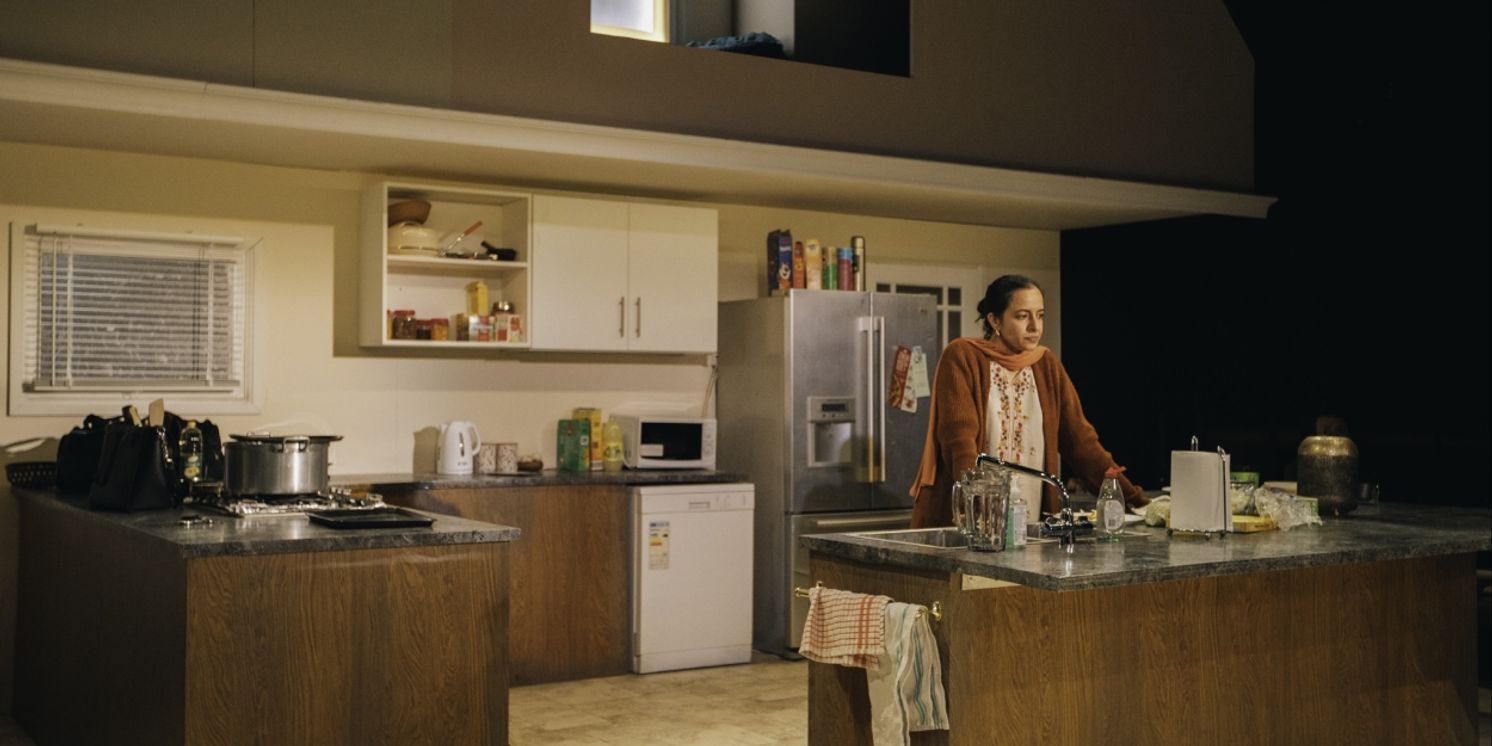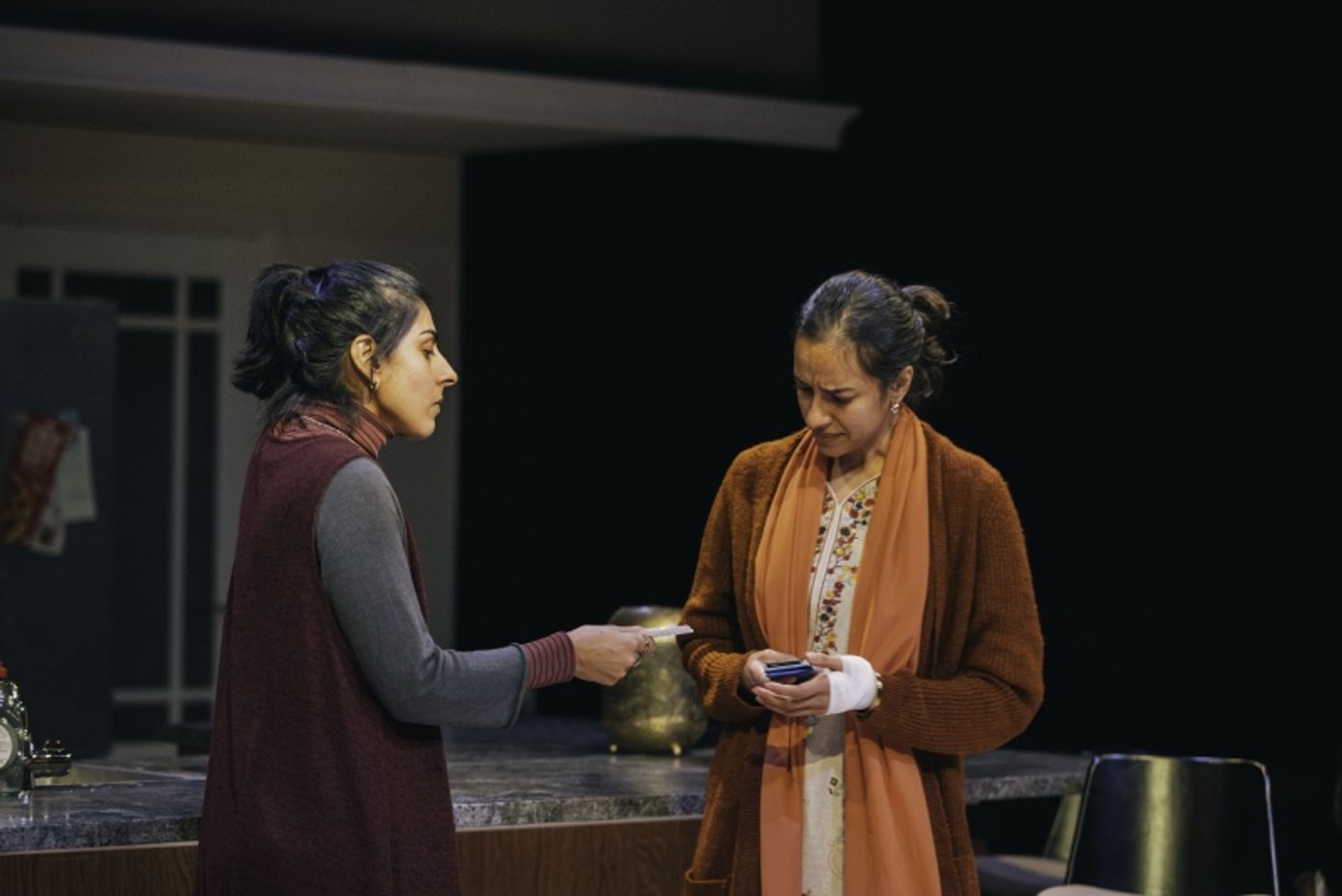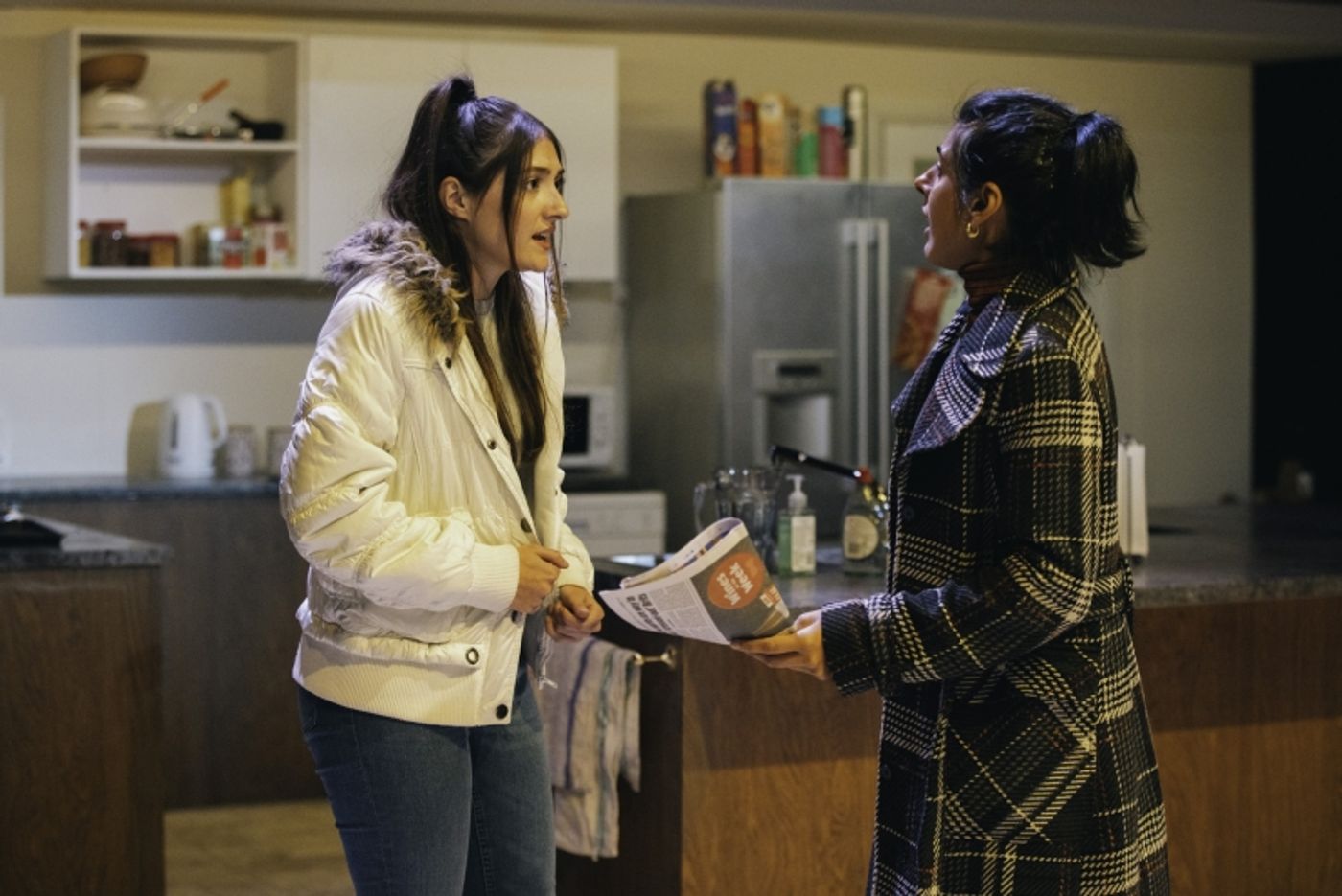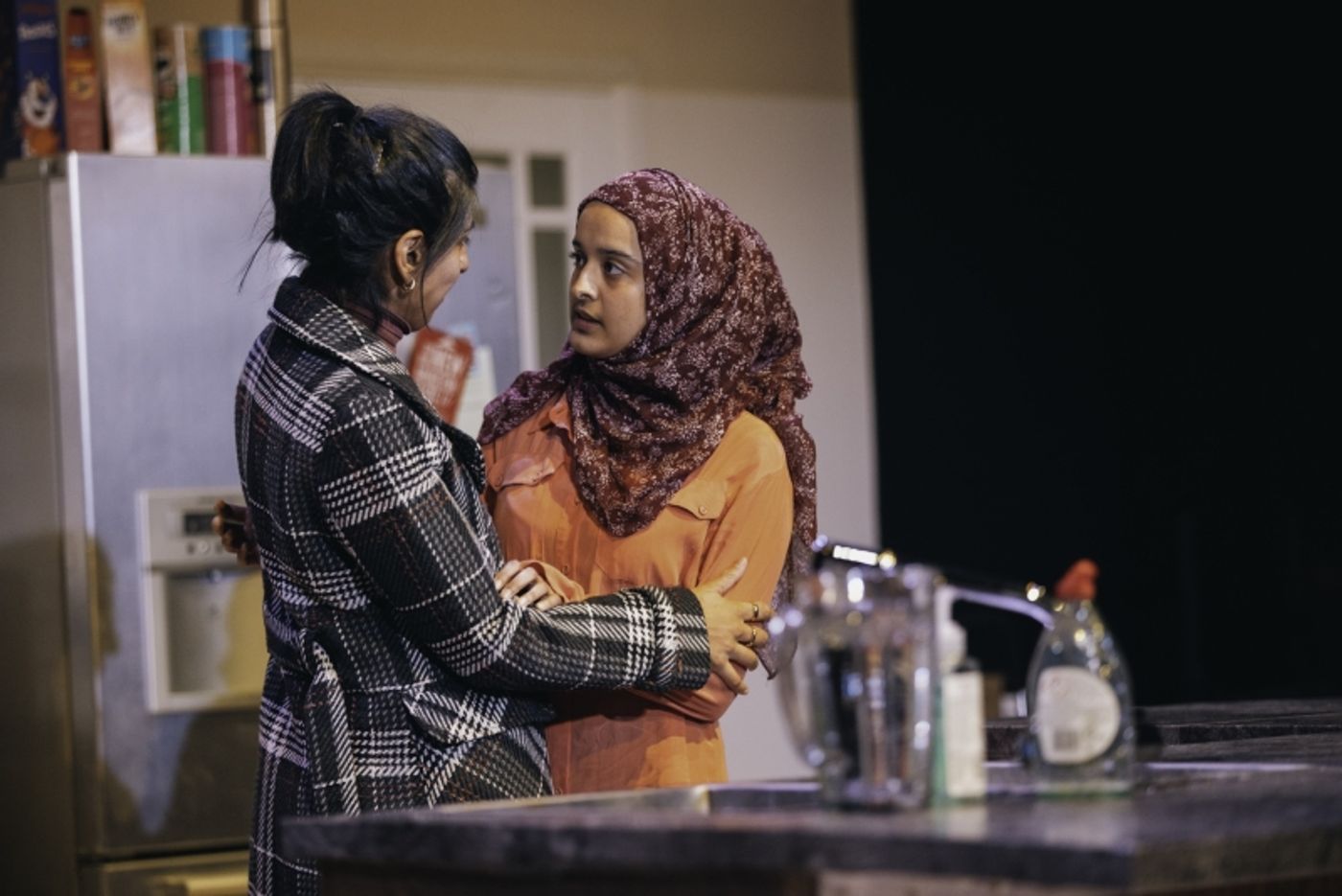Review: EXPENDABLE, Royal Court Theatre
Political drama buckles under its own weight

![]() The Royal Court’s upstairs studio space has become one of the most exciting spaces for new writers, directors, and designers in London, completely transforming for each production. For Expendable, designer Natasha Jenkins executes its most dramatic transformation yet.
The Royal Court’s upstairs studio space has become one of the most exciting spaces for new writers, directors, and designers in London, completely transforming for each production. For Expendable, designer Natasha Jenkins executes its most dramatic transformation yet.
Expendable, written by Emteaz Hussain, all takes place in a family kitchen. As the play begins, we meet Zara (Avita Jay) – a Pakistani mother living in northern England – as she chops onions. This environment of domestic familiarity is quickly disturbed by a knock on the door, and a buzz of tension and fear descends on the scene. Zara’s life is shaken up by the return of semi-estranged sister Yasmin (Lena Kaur), who is walking into a family who have found themselves inadvertently at the centre of a sexual abuse scandal. From this starting point, the show develops into a morally complex examination of the intersection of sexism and racism in British Muslim communities.

Image Credit: Isha Shah
The real star of the show is Jenkins’ set: the family kitchen is built in painstaking detail, creating a believably naturalistic playing space. This is made all the more impressive by the addition of a window into a bedroom on the next floor up: audiences are made to feel as though they have been invited into this family home, welcomed over for dinner. This feeling becomes central to the themes of the play, giving the design extra impact.
Regrettably, the play itself buckles under the weight of its themes and scope. Hussain attempts to tackle a thorny real world issue that’s revealed to be even more complex than it initially seems. The exploration of family divisions and alliances, especially between sisters Zara and Yasmin, and cousins Raheel and Jamal, execute this aim most successfully, as well-rounded, interesting dynamics are built. It’s the intersection of these relationships with the politics of their local community that becomes less successful: as the play goes on, it feels as though the characters become vehicles for different political viewpoints, losing their believability as people in their own right. The dialogue often veers too far towards a tell-not-show approach, and loops around in circles as the same discussions come up over and over without progressing.

Image Credit: Isha Shah
Esther Richardson’s direction does show some creativity: the set is used well, especially in terms of its doorways and windows. However, the tone of the piece lacks variation, with many of the arguments falling into melodrama. This, combined with the use of the characters as spokespeople for different points of view, weighs the show down and draws it out for longer than necessary. It feels as though Expendable could be around half an hour shorter, condensing many of its debates and discussions down and thus strengthening the characterisation.
The cast perform well despite these challenges: the standouts are the younger cast members, Maya Bartley O’Dea as Jade, a white girl who finds herself at the centre of the scandal, and Humera Syed as Sofia, Zara’s activist daughter. Lena Kaur as Yasmin also has some real moments of gravitas. There are definitely scenes where they all shift away from believability and towards melodrama, but the cast all give committed performances.

Image Credit: Isha Shah
The tonal struggles of Expandable are a shame, as Hussain’s idea is a fascinating one. It’s intriguing to see a headline news-style story explored from a personal angle, and to see a show that features so many multi-faceted different points of view. This ambitious, impassioned show has a lot of potential, but struggles to bring its ideas to life in a way that makes good theatre.
Expendable runs at The Royal Court Theatre (Upstairs) until 21 December
Cover Image Credit: Isha Shah
Reader Reviews
Videos

